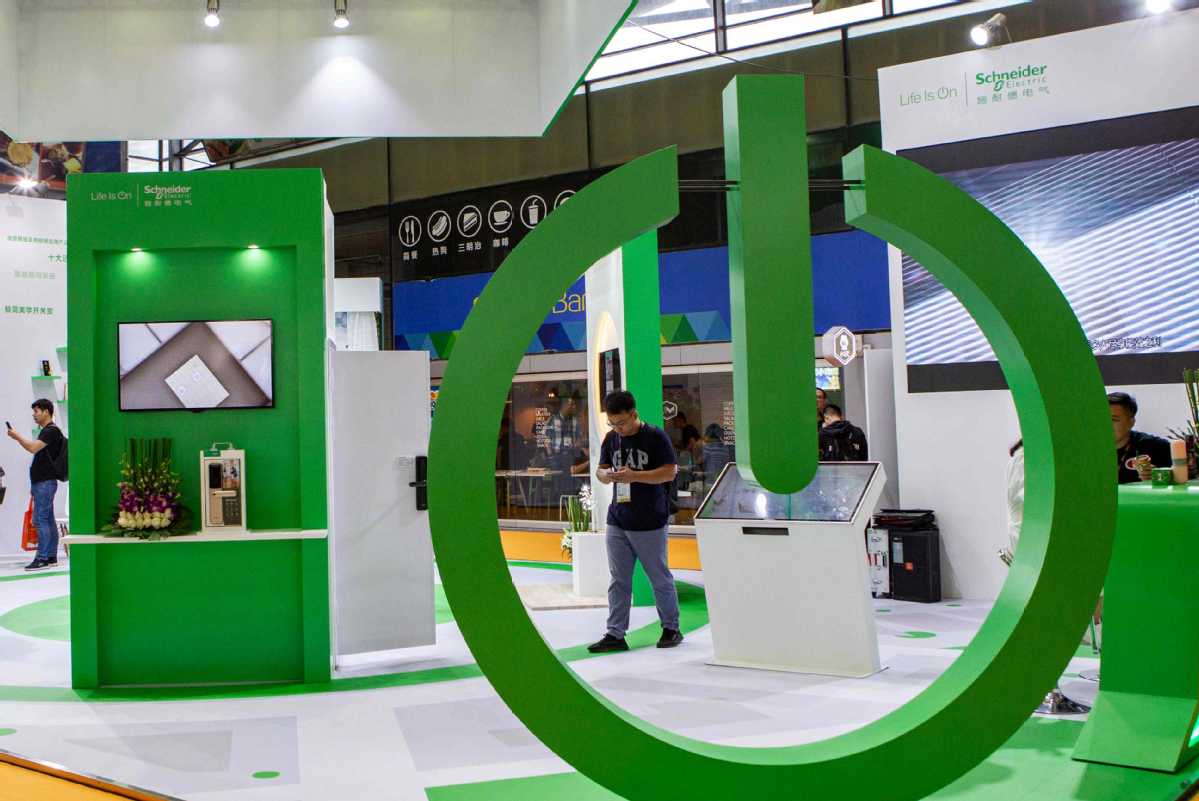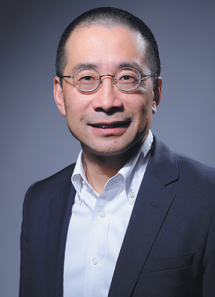Breathing new life into emerging industries


Editor's note: The Chinese government has adopted a series of measures to boost economic growth, including stimulating consumption, further opening up to foreign investment, supporting private enterprises and encouraging technology innovation. China Daily interviewed senior executives of well-known multinational companies to share their views on the country's economic development and their companies' business strategies in China.
With economic optimization and upgrade, investment opportunities are arising for foreign companies in China
Q1: China has rolled out a series of measures to stimulate consumer spending and boost economic growth. What opportunities are there for your business?
Q2: Overall Chinese economic growth has slowed, but the top-line numbers remain relatively robust. In what areas do you plan to increase investment or employment?
Q3: What business opportunities do you see as China continues to pursue higher-quality growth, which is increasingly driven by services and consumption?
Q4: What do you see as the most resilient part of the Chinese economy and how do you plan to align your business with it?
Q5: How has your company adjusted to the uncertainties brought by trade frictions between China and the United States?
Q6: China has adopted policies to further open the economy to foreign investment, to transform financial services and to promote private enterprises. How are you planning to take advantage of these policies?
Q7: How does your company plan to take advantage of the technology transformation opportunities in China over the next decade?

A1 In the first half of this year, China's GDP grew 6.3 percent year-on-year, to which consumption contributed more than 60 percent. Consumption continued to reinforce its fundamental role in the Chinese economy and became one of the most important drivers for China's economic growth.
The 2019 Government Work Report put forward many specific policies and measures to promote consumption and activate the domestic consumer market. This involves food and clothing, household appliances, automobiles, consumer services, cultural entertainment, leisure and tourism. Each of them has a huge market space for businesses to explore.
In the food and beverage industry, for example, liquor and dairy producers have to be flexible to meet consumers' requirement for product customization. It is urgent for them to be flexible in production and think about how to improve the performance and efficiency of entire food packaging lines.
A2 Schneider Electric has been leading the digital transformation in energy management and automation. We're working with our Chinese partners to drive the improvement of quality and efficiency as well as upgrading in industrial sectors through innovative digital technologies, solutions and expertise. In the four focused markets for Schneider Electric - infrastructure, industries, buildings, and data centers - we have seen a growing number of customers who are desperate for digital transformation. In the future, we will focus on investing in these four areas.
A3 In the first half of 2019, the emerging industries represented by high-tech manufacturing had a good growth momentum. For example, the added-value of high-tech manufacturing increased 9 percent, and the spending on revamping manufacturing through technology increased 13.1 percent. This shows that China's positive factors for high-quality growth are increasing, new life is being breathed into emerging industries, and the structure of the Chinese economy is being optimized and upgraded. As China's industrial sectors are upgrading, new investment opportunities are emerging for foreign companies in the transformation of traditional industries, in high-end manufacturing, in smart manufacturing, and so on.
A4 We will invest more in innovation and new technologies, to strengthen our own business and provide more value to our customers. For example, we're going to increase our R&D investment in China by 50 percent over the next three years to invigorate our China operations. On Sept 3, witnessed by the Shaanxi Provincial Government, Schneider Electric officially launched two major global design centers in Xi'an: the Global Low Voltage Equipment Design Center and the Global Green Energy Conservation Design Center. The two centers will provide consulting and technical support regarding the environmental performance of our products and projects around the world. Their launch attests to Schneider Electric's strong commitment to and confidence in Shaanxi and even the entire western China region.
A5 We believe that globalization is a positive trend of the global economy. It brings new opportunities to everywhere in the world and improves international partnerships. Every country, company and individual will benefit from globalization. As a French company established in 1836, today we have a business covering more than 100 countries across the world. This has, without doubt, benefited from globalization.
On the other hand, we are becoming more localized in each market. In each country and market, we customize our strategy based on the local demands and restrictions. In China, for instance, we have established a local supply chain supporting local customer needs, which are being managed by a completely local team. Resulting from our localization strategy, China has become our second-largest market.
We can benefit local communities with our localized supply chain as well. In addition to 23 factories in China, we have thousands of suppliers manufacturing products for us. Now 90 percent of the products we sell in China are made in China. We operate regionally, so we're not affected very much.
A6 As a multinational company, Schneider Electric has been in China for 32 years. It has experienced, benefited from and contributed to China's reform and opening-up. China is Schneider Electric's second-largest market in the world and the largest in terms of the number of employees. We are always confident in the China market.
We noticed that China has taken a series of measures to open up further, including expanding the range of areas open to foreign investment and optimizing foreign investment rules. This helps to increase the confidence of foreign companies, Schneider Electric included, to invest in China.
For Schneider Electric China, there are four main areas of focus: first, the development of the digital economy brought by new technologies such as the internet and internet of things; second, green and sustainable development to cope with climate change and pollution; third, the overall upgrading of China's industry from big to strong; and fourth, potential business driven by the Belt and Road Initiative. Today, the Belt and Road Initiative has arguably emerged as the most vital overseas pathway for Chinese companies to pursue their continued globalization and transformative ascent up the value chain. And as one of their most trusted foreign partners, Schneider Electric is working closely with Chinese firms in many third markets along the involved routes, leveraging our leading technologies and global resources to help empower us all to capture the enormous opportunities that have been opened up by China's visionary transnational endeavor.
A7 New technologies like IoT, artificial intelligence and 5G have replaced IT as the key to seizing new opportunities. Major multinational companies should spend more on innovation and new technologies, to reinforce themselves and maximize the value for their customers. At Schneider Electric, we'll stay true to our DNA, keep innovating, and remain sustainable; we will continue to pursue digital transformation and leverage our expertise to serve our customers in energy and other industrial sectors.
However, we shouldn't mystify new technologies. For any industry, AI and 5G are just the tools to empower them, and their use should be based on and driven by specific scenarios and purposes. Schneider Electric is better-positioned to deliver insights into the application scenarios of industrial verticals.
- China's financial opening up provides opportunities for foreign capital
- Decoupling from Chinese economy means decoupling from opportunities, future: Chinese FM
- Adapting to evolving consumer expectations
- Global firms to embrace new era of manufacturing
- Participating in China's growth very important, says business leader



































